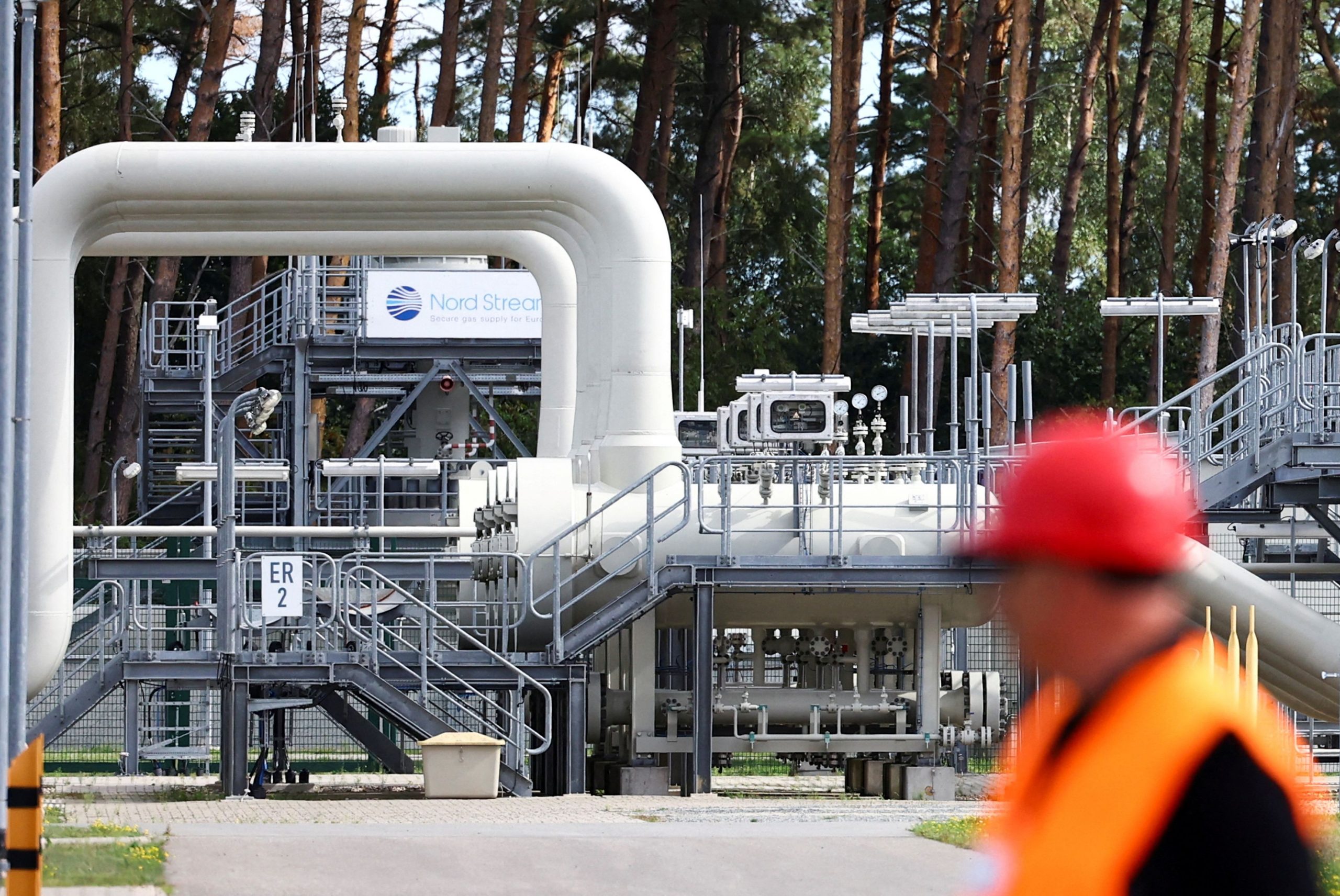BERLIN—The disclosures that a team of Ukrainians blew up the Nord Stream natural gas pipelines while using Poland as a logistical base have sparked a dispute between Berlin and Warsaw, two U.S. allies backing Ukraine in the war.
Polish Prime Minister Donald Tusk lashed out at Germany on Saturday after a nearly two-year German investigation found that a team of Ukrainians sabotaged the world’s largest offshore pipeline system in September 2022. The operation involved a small rented yacht and a six-member team, The Wall Street Journal reported last week.
Authorities in Poland didn’t act on an arrest warrant that German officials had issued in June, seeking one of the suspected crew members. The suspect, who German authorities haven’t publicly identified, subsequently fled to his homeland of Ukraine, prompting an outcry from some in Germany.
In a Saturday post on X, Tusk took aim at the “initiators and patrons” of Nord Stream 1 and 2, the twin pipelines that ran in parallel on the Baltic seabed, carrying Russian gas to Western Europe. “The only thing you should do today about it is apologize and keep quiet,” he said.
Late last week, Polish prosecutors sent an official letter to their German counterparts to inform them that the suspect had left the country, according to people familiar with the matter. The letter asked whether German investigators would still be interested in having Polish authorities search the suspect’s house near Warsaw.
The letter was seen by German authorities as “adding insult to injury,” after Polish authorities hadn’t acted on the arrest warrant, according to a person familiar with the matter.
Polish prosecutors said publicly that they didn’t immediately arrest the suspect because their German counterparts had made an error when they requested his detention—failing to enter the suspect’s address in a European register. German authorities deny that.
Polish authorities then said the country’s internal security service, ABW, would have to review the matter before an arrest could be made.
Poland, like the U.S. and other German allies, was opposed to the Nord Stream pipelines since their inception nearly two decades ago. German governments, notably those of former Chancellor Angela Merkel , went ahead with the pipelines despite the objections. Germany proceeded with Nord Stream 2 even after Russia first invaded Ukraine and annexed Crimea in 2014. undefined undefined Tusk’s statement reflected a “rock-solid consensus” in Poland, said head of national security bureau Jacek Siewiera, who was appointed by President Andrzej Duda , a politician long affiliated with the former ruling Law and Justice Party, now in the opposition. undefined undefined German officials across the political spectrum were taken aback by Tusk’s statement, but decided not to respond to avoid escalating the dispute at a time when the two North Atlantic Treaty Organization allies were supposed to be working together to support Ukraine in its fight against Russia, according to people familiar with the matter. “[Vladimir] Putin is our common enemy and we would all do well to remember that,” a senior German minister said.
On Monday, Russia weighed in. Moscow filed a complaint with Germany for lack of progress in the Nord Stream investigation and asked for urgent talks about “Germany fulfilling its international obligations in the fight against terrorism,” Oleg Tyapkin, director of the third European department of the Russian Foreign Ministry, told the state news agency RIA. Tyapkin warned against ending the investigation into the explosions without identifying those who ordered them.
The dispute between Warsaw and Berlin that burst out into the open over the weekend had been brewing for months. Some German investigators and politicians say that Polish authorities deliberately tried to derail the investigation. Already last year, Polish authorities refused to provide CCTV footage of the yacht, which had been moored in a Polish port, as well as mobile phone data from the area, according to German investigators . undefined undefined Poland’s internal security service ABW rejected the claims and said no such footage exists. Polish prosecutors said the footage was routinely overwritten after 30 days according to standard procedure.
Poland and Germany share a long border, and their police forces cooperate so closely that they have given each other policing powers in the border areas of their respective territories.
Nonetheless, German authorities became alarmed when Polish prosecutors told them they couldn’t arrest the suspect until ABW reviewed the case, according to people familiar with the matter. Berlin then decided to escalate the case to the top echelons of the Polish government.
On July 2, a group of German cabinet ministers, led by Chancellor Olaf Scholz , visited Warsaw for a joint session with Tusk’s government. The meeting of members of the two cabinets is a long-established tradition to further the relationship between the two nations that share a difficult history going back to World War II.
There, German ministers asked their Polish counterparts to make sure the warrant was executed, according to a person familiar with the discussions. The Poles refused, the person said. undefined undefined Any potential suspects who might have played a role in the destruction of the pipelines should be given medals instead of being arrested, one senior Polish official privately told a German counterpart, the person said. undefined undefined The suspect then left Poland by car on July 6, crossing into Ukraine, according to people familiar with the investigation. All of the suspects in the German investigation are now thought to be in Ukraine, which doesn’t extradite its own citizens.
Write to Bojan Pancevski at bojan.pancevski@wsj.com



